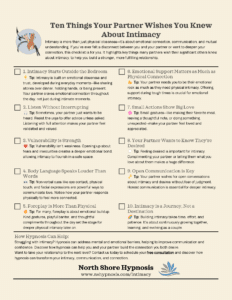
Sexual performance is influenced by a complex interplay of physical and psychological factors. Often, when individuals experience difficulties in their sexual performance, the initial instinct is to focus solely on physical solutions—medications, exercise, or dietary changes. However, addressing the mind is just as important, if not more so, in understanding and overcoming performance-related issues. The mind-body connection plays a significant role in sexual health, affecting everything from arousal and performance to overall satisfaction in relationships.
In this comprehensive guide, we’ll delve into the mind-body connection in sexual performance, explore how emotional and psychological factors impact sexual health, and discuss effective ways to enhance sexual performance through a deeper understanding of this relationship.
The Basics of the Mind-Body Connection
The mind-body connection refers to the relationship between mental states and physical outcomes. This concept is not new—philosophers and healers have long recognized the link between mental health and physical well-being. In the context of sexual performance, the mind-body connection explains how thoughts, emotions, and beliefs can directly affect physical arousal, performance, and pleasure.
When the mind is stressed, anxious, or preoccupied with negative thoughts, the body often follows suit. For example, stress and anxiety can cause physiological responses like increased heart rate, shallow breathing, and muscle tension, all of which can negatively impact sexual performance. Conversely, when the mind is relaxed and positive, the body is more likely to respond with ease, promoting better sexual function.
How Stress and Anxiety Affect Sexual Performance
One of the most common disruptors of sexual performance is stress. Stress triggers the body’s fight-or-flight response, a physiological reaction designed to prepare the body for danger. While this response is useful in life-threatening situations, it can be detrimental to sexual performance. When the body is in fight-or-flight mode, it diverts blood flow away from non-essential functions like digestion and sexual arousal, making it difficult to achieve and maintain an erection or experience sexual pleasure.
Performance anxiety is another major factor. This type of anxiety stems from fear or worry about one’s ability to perform sexually, often leading to a self-fulfilling prophecy. The more a person worries about their performance, the more likely they are to experience difficulties. Over time, this anxiety can become ingrained, creating a mental block that hinders sexual function even in situations where the individual feels otherwise relaxed.
In some cases, stress and anxiety may be related to external factors like work pressure, financial concerns, or relationship conflicts. However, even unresolved internal issues, such as low self-esteem or body image concerns, can contribute to performance anxiety. By recognizing the role of the mind in these scenarios, individuals can begin to address their concerns more effectively and improve their sexual health.
To learn more about the broader impact of stress and anxiety, check out Hypnosis for Stress and Anxiety.
The Role of Self-Esteem and Body Image
Self-esteem and body image play crucial roles in sexual performance. When individuals feel confident and comfortable in their bodies, they are more likely to engage in and enjoy sexual activities. On the other hand, negative body image or low self-esteem can cause individuals to feel self-conscious, withdrawn, or anxious during intimate moments, which can lead to performance issues.
Negative self-perception often stems from societal standards of beauty or past negative experiences. Over time, these negative beliefs can become deeply ingrained, making it difficult for individuals to enjoy intimacy without feeling self-conscious. The mind-body connection explains how these mental barriers can manifest physically—when someone feels unattractive or inadequate, they may experience difficulty becoming aroused, achieving orgasm, or maintaining an erection.
Hypnosis is one powerful tool that can help address body image issues and boost sexual confidence. Through guided relaxation and positive reinforcement, hypnosis can help individuals reframe negative thoughts and develop a more positive relationship with their bodies. To explore how hypnosis can improve body image and self-esteem, check out Enhancing Body Image and Sexual Self-Esteem Through Hypnosis.
Performance Anxiety and the Mind-Body Connection
Performance anxiety is perhaps the most direct example of how the mind-body connection can affect sexual performance. This type of anxiety often arises when an individual feels pressure to perform well sexually, whether due to personal expectations, partner expectations, or fear of failure. The anxiety associated with these feelings can trigger a series of physical responses, such as increased heart rate, rapid breathing, and even muscle tension, which all hinder sexual performance.
For men, performance anxiety may manifest as erectile dysfunction, while women may experience difficulty becoming aroused or achieving orgasm. Over time, this anxiety can create a vicious cycle—worrying about sexual performance leads to physical difficulties, which in turn increase anxiety in future sexual encounters.
One effective approach to breaking the cycle of performance anxiety is through relaxation techniques and mental reframing. Hypnosis, for example, has been shown to reduce stress and anxiety by guiding individuals into a deeply relaxed state where they can let go of negative beliefs and replace them with positive affirmations. Harnessing the Power of the Mind: Hypnosis Techniques for Performance Anxiety explores how hypnosis can help address this issue.
The Impact of Sexual Trauma and Emotional Barriers
Another critical aspect of the mind-body connection is the role of past experiences, particularly traumatic ones, in shaping sexual performance. Individuals who have experienced sexual trauma may develop emotional and psychological barriers that prevent them from fully enjoying intimate moments. These barriers often manifest physically, leading to difficulties with arousal, pain during sex, or avoidance of sexual activity altogether.
Emotional healing is a necessary component of overcoming these barriers. Hypnosis can be used to help individuals access their subconscious mind and work through unresolved emotions tied to past trauma. By fostering a sense of safety and control, hypnosis can help individuals release negative emotions and cultivate healthier responses to sexual experiences.
For those struggling with overcoming sexual trauma or emotional barriers, Using Hypnosis to Overcome Sexual Phobias and Aversions offers valuable insights into how hypnosis can support emotional recovery and improved sexual function.
The Importance of Mental Relaxation and Mindfulness in Sexual Performance
Relaxation is key to improving sexual performance, and understanding the mind-body connection reveals why. When the mind is calm and free from stress or anxiety, the body is more likely to respond positively during sexual activity. Techniques that promote relaxation, such as mindfulness and hypnosis, can help individuals quiet their racing thoughts, focus on the present moment, and fully engage with their partner.
Mindfulness, in particular, has gained popularity as a tool for improving sexual performance. By focusing attention on the sensations of the body and letting go of distractions or worries, individuals can experience heightened sexual pleasure and deeper connection with their partners.
Hypnosis, which also induces a state of deep relaxation, offers an additional layer of support by addressing the subconscious mind and promoting long-lasting behavioral changes. Combining mindfulness practices with hypnosis can provide a powerful toolkit for overcoming sexual performance challenges.
If you’re looking for a simple guide to relaxation, Hypnosis for Relaxation and Stress Relief offers techniques to help you find inner peace and reduce stress, which can have a direct positive impact on your sexual health.
Reprogramming Negative Beliefs with Hypnosis
Negative beliefs about sex, whether conscious or subconscious, can significantly affect sexual performance. These beliefs may come from societal expectations, cultural conditioning, or past experiences, and they often manifest in limiting thoughts or behaviors. For example, someone who believes they are not “good enough” sexually may experience difficulty becoming aroused or fully engaging in intimate moments.
Hypnosis is an effective tool for reprogramming these negative beliefs. Through guided sessions, a hypnotist can help individuals access their subconscious mind, where many of these limiting beliefs are stored. By replacing negative thoughts with positive affirmations and new perspectives, hypnosis helps individuals develop a healthier, more empowered relationship with their sexuality.
To better understand how hypnosis works for addressing limiting beliefs, check out Breaking Free from Sexual Shame with Hypnosis, which explores the transformative power of hypnosis for sexual healing.
Hypnosis as a Solution for Common Sexual Performance Issues
Because hypnosis directly addresses the mind-body connection, it is an effective treatment for a range of common sexual performance issues. Whether the problem is rooted in stress, anxiety, negative beliefs, or past trauma, hypnosis offers a non-invasive solution that targets the psychological causes of sexual difficulties.
Common sexual performance issues that can be addressed through hypnosis include:
- Erectile Dysfunction: Often triggered by performance anxiety or stress, erectile dysfunction can be alleviated by using hypnosis to calm the mind and reduce fear of failure. Learn more about how hypnosis can help in our post on Hypnosis for Addressing Erectile Dysfunction.
- Low Libido: Hypnosis can help uncover and address the underlying psychological factors that contribute to low libido, such as stress or unresolved emotions. By promoting relaxation and reducing stress, hypnosis can restore sexual desire.
- Sexual Phobias or Aversions: For individuals who experience fear or discomfort around sex, hypnosis offers a safe way to address and reframe these emotions. Using Hypnosis to Overcome Sexual Phobias and Aversions provides more details on how this process works.
- Performance Anxiety: Hypnosis can help break the cycle of performance anxiety by calming the mind and boosting confidence. To understand how this works, read more about How to Break the Cycle of Performance Anxiety Using Hypnosis.
Conclusion: Strengthening the Mind-Body Connection for Better Sexual Performance
The mind-body connection plays a crucial role in sexual performance, affecting everything from arousal and desire to overall satisfaction. By understanding how mental states impact physical outcomes, individuals can take steps to improve their sexual health in a holistic and lasting way.
Hypnosis offers a powerful and effective tool for addressing the psychological barriers that can hinder sexual performance. By reducing stress, reprogramming negative beliefs, and promoting relaxation, hypnosis strengthens the mind-body connection and helps individuals achieve better sexual health and satisfaction.
For more information on how hypnosis can enhance various aspects of your life, visit our resources on Hypnosis for Stress and Anxiety and Hypnosis for Relaxation and Stress Relief.
Start your journey towards improved sexual performance by embracing the power of your mind and body today. Click here to learn more about Intimacy Coaching at North Shore Hypnosis.
Learn Ten Things Your Partner Wishes You Knew About Intimacy

Do you want to have better intimate relationships? Discover ten things your partner wants you to know to have more fulfilling relationships.
Click now for your free checklist, “Ten Things Your Partner Wishes You Knew About Intimacy.

